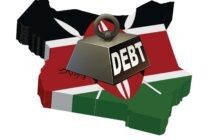By Angela Mutiso
Points to Ponder
I have worked hard for many years, but it has all come to naught – a civil servant explaining his predicament upon retirement.
A hungry stomach, an empty wallet, and a broken heart can teach you the best lessons of life- Robin Williams.
Where did my money go … is a question many people ask. The first step in starting to save money
is determining how much you spend… you should write down your expenses, by using a simple spreadsheet, or a free online expenditure tracker or app to keep track of your expenses. Once you’ve
gathered your information, sort it into categories like petrol, food, mortgage payments, and house rent and add up the totals. Make sure you’ve included everything by checking your credit card and bank statements.
Avoid getting caught up in the larger picture; Microfinance—the tiny decisions you make with your money—are considerably more important than macroeconomics. Every financial problem you want to get rid of and every financial desire you want to realize stems from taking small measures today to get you on the right track. “The key to success in anything in life is harnessing the power of the Compound Effect, which means the effects of small, everyday choices will compound over time, leading you to success—or disaster, depending on your choices.” (Darren Hardy).
Minor steps that can pay off; budgeting can significantly improve the success of any financial endeavor. It is, in essence, a forecast of revenue and expenses for a future period of time. Bank of America says; you should record your expenses, including saving in your budget, which should show what your expenses are,
relative to your income. This will enable you to plan your expenditure and limit extravagance.
Factor in your regular expenses; Keep improving your savings every day. Find ways to cut spending. If saving as much as you want is difficult, cut back on how much you spend on things you can do without like entertainment and dining out. Bank of America says cutting down on every day expenses can include; searching for free activities, reviewing recurring charges, and where possible canceling subscriptions and
memberships you do not use especially if they renew automatically; eating most meals at home and waiting before you buy stuff, so you can plan fast are points you should remember.
Remember long-term goals—it’s important that planning for retirement doesn’t take a back seat to shorter-term needs. Learning how to prioritize your savings goals can give you a clear idea of how to allocate your savings.
Setting savings goals is vital; you can do so for long or short-term goals, and you can save for what you want while predicting how long it will take you to acquire it. Make a tiny, attainable short term objective for something enjoyable that is outside of your monthly budget.
Smaller goals—and appreciating the reward for which you’ve saved—can provide a psychological boost, making the result of saving more immediate and underpinning the habit. Establish your financial priorities. Your goals are likely to have the most impact on how you manage your savings.
Evaluate all of the alternatives for shortand long-term savings and investment accounts; take into consideration balance minimums, fees, interest rates, risk, and how soon you’ll need the money to find
the mix that will help you save the most for your goals.
Suze Orman, one of the most respected voices in personal finance, as well as a New York Times bestselling author with more than 25 million books in print (yahoo finance) says; live within your means while still satisfying your needs. She stresses that, although food and shelter are essentials, do not overspend on these necessities. Secondly, do not underestimate how long you could live when planning for retirement – she notes: “I have long recommended that you base your retirement planning on living to at least 90; to be even safer planning to age 95 is even smarter…Anyone who makes it to age 65 basically has a 50-50 chance of still being alive in his or her mid-80s. And living into your 90s is not nearly as rare as you may think.” Orman added that not being financially prepared to live into your 90s is “a very costly mistake.”
Meanwhile, notable financial advisers say credit cards, are intentionally designed to be easy payment solutions. Ryan Sterling, discussing this subject says, the easier they make the shopping experience, the more you’ll spend.’ He points out that, if you want to be financially independent, saving won’t take you there. You must change your mindset from being a consumer to being an owner. Instead of spending $500, 000 buying shoes and clothes for example, take that money and own part of the Stock Market.
Evaluate all of the alternatives for short- and long-term savings and investment accounts; take into consideration balance minimums, fees, interest rates, risk, and how soon you’ll need the money to find the mix that will help you save the most for your goals.
There is power in small actions; your small actions will be rewarded over time Think ten years into the future, $200,000 will help you ten years later. How do you determine your financial status? The first stage is financial dependency, this is when you depend on your parents for everything; financial solvency- is when you can meet all your financial obligations without depending on anyone; debt freedom- is when you have cleared all your debts except, perhaps, your mortgage. Coasting financial independence; is living frugally and saving so you are able to take care of your retirement, even if you don’t earn any more money.
Financial security; is when you are able to take care of the basics for your survival like food, accommodation and transportation. Then there is financial flexibility; when you have enough money to take care of all your expenses and still have a bit leftover. Financial freedom -is when you can maintain your old lifestyle even after retirement. Finally, financial abundance is having more than you’ll ever need in your lifetime. Where do you belong?
Where your money goes…A good look at your pay slip will tell you where your money goes; you see it when you pay your electricity bill, when you shop at the supermarket, when you pay your water bill and when you borrow money. The same applies to when you eat in a restaurant, buy petrol, use a bus or you go to hospital – the list is endless. You are taxed all the time.
Start planning now in case you haven’t already. Strategize for your health because as you grow older, you get sick more often. Write down key action steps and follow them. Tag along with your attorney, your tax counsel, insurance broker, risk management advisor, and doctor.
Track your money!
The writer is an editorial consultant with The Accountant Journal – [email protected]




